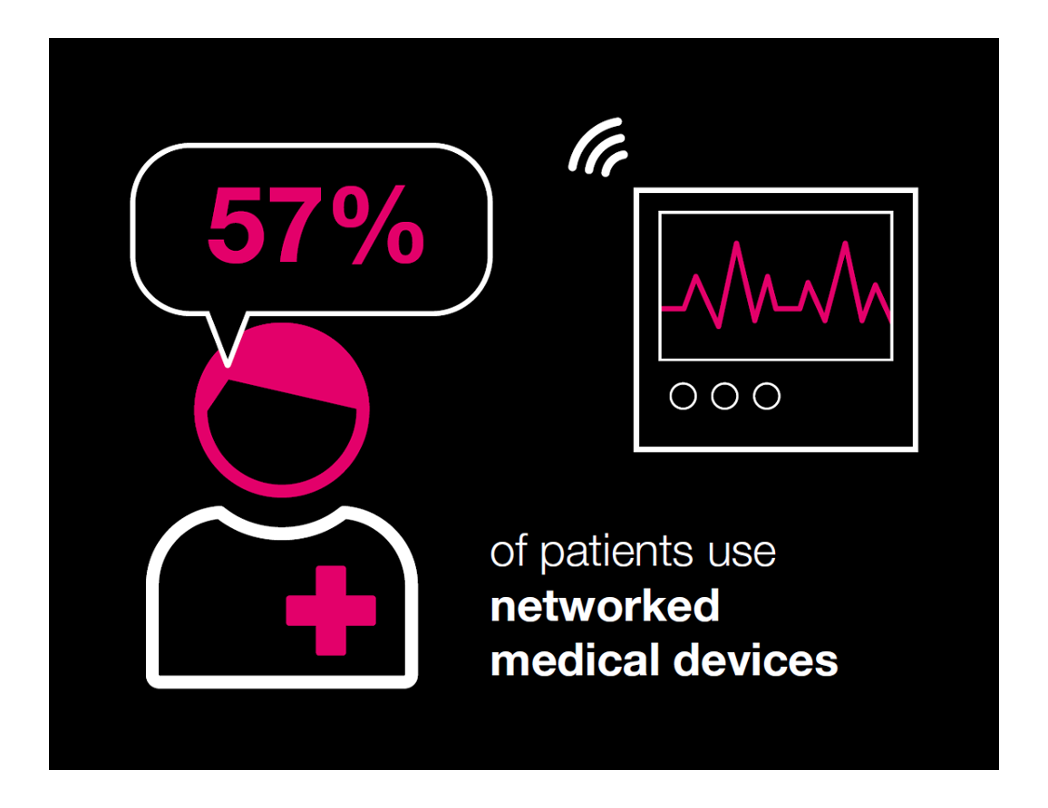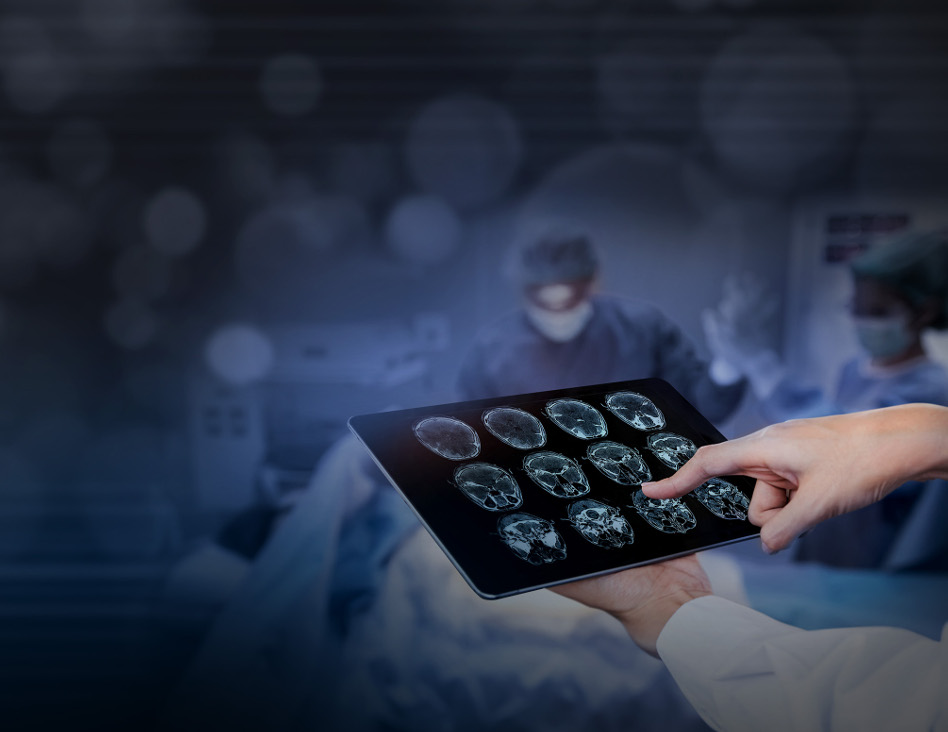
A quantum leap for healthcare.
E-Health is the generic term for a wide spectrum of ICT (information and communication technology)-supported applications that process digital information, share it securely, and support therapeutic measures for patients. These electronic processes also make healthcare statistically measurable.
Mobile applications like step counters and pulse monitors are often preinstalled on smartphones and are capable – after analyzing individual fitness levels – of sending warnings about risks of cardiovascular stress. Nutritional intake can be entered into digital diaries that let the user know if they have dietary deficiencies. The opportunities that E-Health or M-Health (mobile health) offer will revolutionize diagnostics and treatment and shift the focus of healthcare to prevention and anticipatory care.
The Internet of Things (IoT) will steer the development of the healthcare industry from a reactive to a predictive and preventive system that proactively addresses patients, and that is determined by evidence-based medicine.

Faster diagnosis due to reliable data processing.
To master the coming challenges, the appropriate network architecture is needed. The transmission of large volumes of sensitive data to a central computing center for analysis and exchange requires enormous bandwidth and time.
Edge computing enables the decentralized processing and storage, so that physicians and patients get results faster and more reliably. This means better treatment plans that profit both the patient and the health system.

A functioning IT system is crucial for numerous hospital procedures, from admission of the patient and IT-assisted logging of the relevant data, through to the transmission of urgently required tomographic images before an operation. A data center failure could bring all hospital operations to a standstill.
Hospitals that treat at least 30,000 in-patients per annum are classed as critical infrastructures, whose failure or impairment is likely to cause protracted treatment bottlenecks and major disruptions to public safety or have other serious consequences.
Germany’s IT Security Act (IT-SiG) stipulates that critical infrastructures must meet predefined security standards and report any significant IT incidents to the Federal Office for Information Security (BSI).
Do you have any questions? If so, please get in touch. We’ll be only too happy to help you with any questions about the Digital Healthcare and IT Security.